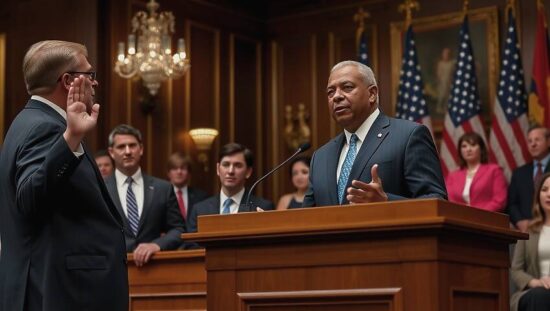In the first meeting of the newly elected US Congress on Friday, the House of Representatives re-elected Mike Johnson as its speaker. Of the 434 present lawmakers, 218 voted for the Republican, while 215 Democrats voted for Hakeem Jeffries, and one Republican voted for Tom Emmer.
Initially, Johnson had the support of only 216 of the 219 Republicans, requiring a majority of 218 lawmakers. Instead of ending the voting and holding a second round, the session leadership waited for nearly an hour until two Republicans eventually changed their votes in favor of Johnson.
The designated US President, Donald Trump, had publicly expressed his support for Johnson in the run-up to the vote. The Louisiana representative was a key figure in the House of Representatives in the failed efforts to overturn the 2020 presidential election in Trump’s favor. He was one of the House members who voted to challenge the election results during the counting of electoral college votes.
Matt Gaetz, who was set to take the 220th Republican seat in the chamber, had resigned from his position due to Trump’s consideration of him as Attorney General. His parliamentary seat is currently vacant.
The election of a speaker is usually considered a formality that is quickly resolved. In 2023, however, the Republican Kevin McCarthy required 15 rounds of voting to be elected. A similar delay this time would have threatened the schedule for the planned confirmation of Donald Trump’s election victory by the chamber on Monday, as long as no speaker was elected, other parliamentary procedures, such as the swearing-in of lawmakers, could not be carried out.





